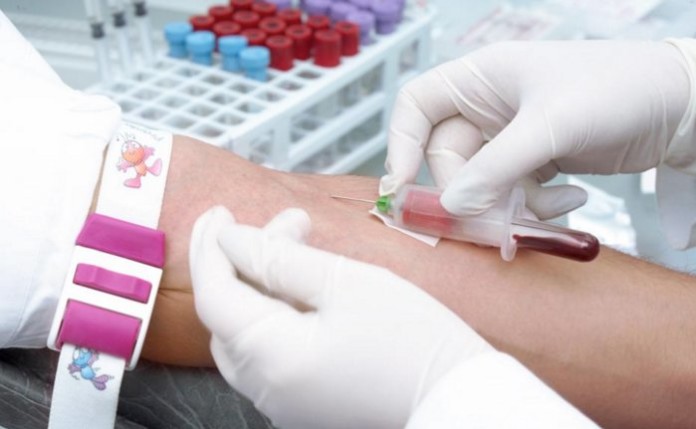Scientists from the Cancer Research UK Manchester Institute studied the DNA shed by tumours into the bloodstream – called circulating tumour DNA – in blood samples from seven advanced melanoma patients at The Christie NHS Foundation Trust.
In this early work they found they could see whether a patient was relapsing by tracking levels of circulating tumour DNA. And they found that new mutations in genes like NRAS and PI3K appeared, possibly causing the relapse by allowing the tumour to become resistant to treatment.
Most melanoma patients respond to treatment at first but their cancer can become resistant within a year. It is hoped that these approaches will allow doctors to use circulating tumour DNA to tailor treatment for individual patients to get the best result.
Around 40 to 50 per cent of melanoma patients have a faulty BRAF gene** and they can be treated with the targeted drugs vemurafenib or dabrafenib. But for many of these patients the treatments don’t work, or their tumours develop resistance after a relatively short time. When this happens these patients can be offered immunotherapy drugs including pembrolizumab, nivolumab and ipilimumab. Detecting this situation early could be key to improving their care and chances of survival.
Around 14,500 people are diagnosed with melanoma and more than 2,100 people die from it every year in the UK ***. Professor Richard Marais, lead author and Cancer Research UK’s skin cancer expert, said: “Being able to spot the first signs of relapse, so we can rapidly decide the best treatment strategy, is an important area for research. Using our technique we hope that one day we will be able to spot when a patient’s disease is coming back at the earliest point and start treatment against this much sooner, hopefully giving patients more time with their loved ones. Our work has identified a way for us to do this but we still need to test the approach in further clinical trials before it reaches patients in the clinic.”
Professor Peter Johnson, Cancer Research UK’s chief clinician, said: “One of the sinister things about melanoma is that it can lay dormant for years and then suddenly re-emerge, probably as it escapes from the control of the body’s immune system. Being able to track cancers in real time as they evolve following treatment has huge potential for the way we monitor cancers and intervene to stop them growing back. There’s still some time until we see this in the clinic but we hope that in the future, blood tests like these will help us to stay one step ahead in treating cancer.”
The research was funded by Cancer Research UK and the Wellcome Trust.
For media enquiries contact Emily Head in the Cancer Research UK press office on 020 3469 6189 or, out of hours, on 07050 264 059.
Notes to editor:
* Girotti et al. Application of sequencing, liquid biopsies and patient-derived xenografts for personalised medicine in melanoma. Cancer Discovery.
** http://www.ncbi.nlm.nih.gov/pmc/articles/PMC4306428/
*** Number of new cases diagnosed and number of deaths from malignant melanoma (ICD10 C43) in the UK in 2013
About the Wellcome Trust
The Wellcome Trust is a global charitable foundation dedicated to improving health. We support bright minds in science, the humanities and the social sciences, as well as education, public engagement and the application of research to medicine.
Our investment portfolio gives us the independence to support such transformative work as the sequencing and understanding of the human genome, research that established front-line drugs for malaria, and Wellcome Collection, our free venue for the incurably curious that explores medicine, life and art. http://www.wellcome/ac/uk
About the Cancer Research UK Manchester Institute
The Cancer Research UK Manchester Institute is a research institute within The University of Manchester, and is core-funded by Cancer Research UK. Research at the Institute spans the whole spectrum of cancer research, from programmes investigating the molecular and cellular basis of cancer to those focused on translational research and the development of novel therapeutic approaches.
About Cancer Research UK
* Cancer Research UK is the world’s leading cancer charity dedicated to saving lives through research.
* Cancer Research UK’s pioneering work into the prevention, diagnosis and treatment of cancer has helped save millions of lives.
* Cancer Research UK receives no government funding for its life-saving research. Every step it makes towards beating cancer relies on every pound donated.
* Cancer Research UK has been at the heart of the progress that has already seen survival in the UK double in the last forty years.
* Today, 2 in 4 people survive their cancer for at least 10 years. Cancer Research UK’s ambition is to accelerate progress so that 3 in 4 people will survive their cancer for at least 10 years within the next 20 years.
* Cancer Research UK supports research into all aspects of cancer through the work of over 4,000 scientists, doctors and nurses.
* Together with its partners and supporters, Cancer Research UK’s vision is to bring forward the day when all cancers are cured.
Source: Eurekalert.org






























